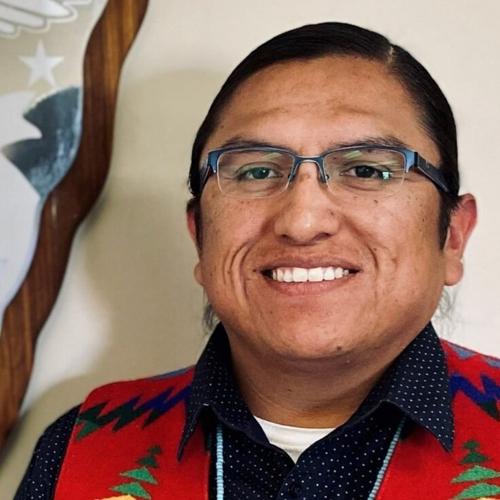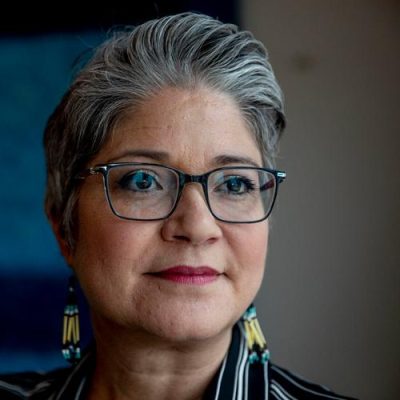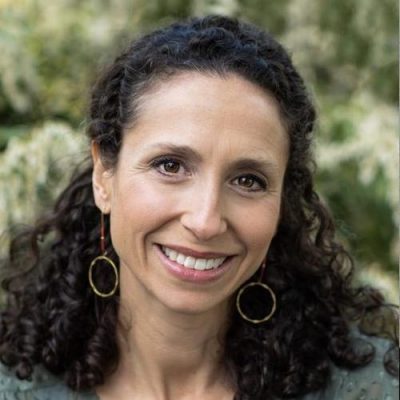
Director of the Indigenous Leadership Program
An artist’s rendering of the proposed Goldendale Water Pump Storage Project. Photo credit: Washington State Department of Ecology
View the recording and see resources from our conversation with Jeremy Takala (Yakama), Maia Bellon (Mescalero Apache), and Lauren Goldberg from Columbia Riverkeeper on Yakama Nation’s opposition to the proposed Goldendale Water Pump Storage Project.
Thursday, April 20, 2023
American Indian Tribes have embraced the need for alternative energies to diminish dependence on fossil fuels and combat climate change, but green energy can come at a high cost for Indigenous communities. Designed for seemingly under-developed or isolated rural areas by industry, green energy projects are sometimes planned for lands that hold irreplaceable cultural resources or sacred sites, or are in “usual and accustomed places” as identified in treaties.
The proposed $2 billion Goldendale Water Pump Storage Project planned for South Central Washington near the Yakama Reservation is one such project. What is the project, and why is the Yakama Nation opposed to it? What are the legal and moral obligations of state and federal governments to consult appropriately with tribes? What does successful and respectful consultation look like? And how can NGOs be effective partners when tribes are faced with cultural and environmental threats on their landscapes?
“
The work that the Yakama Nation and other tribes and partners are doing is for the benefit of future generations, not only for our membership but for our neighbors in the region.
We’ve been getting a lot of attention with this administration for Columbia River salmon restoration and we’ve also been supporting [green] energy projects or energy replacement. But let’s do it in a manner that respects tribal sovereignty. Let’s do it in a manner that protects traditional cultural properties.
— Jeremy Takala
Watch a recording of An Uneasy Conundrum: Green Energy & Tribes held on Thursday, April 20. Download the transcript here.
report
CRITFC
resolution
National Congress of American Indians
Press release
Yakama Nation
legislation
Washington Governor’s Office of Indian Affairs
legislation
Washington State Legislature
In honor of our speakers, we encourage you to support the following organizations.
Hood River, OR
Little Canada, MN
Portland, OR; Seattle and Olympia, WA
Seattle, WA


Maia Bellon
(Mescalero Apache)
Partner, Cascadia Law Group Environmental Attorneys
From 2013 to 2020, Maia Bellon served as the director of the Washington State Department of Ecology and was the first Native American to serve as a member of the Washington state cabinet. As director of the Department of Ecology, she managed a staff of 1,700 people and oversaw a biennial budget of $2.3 billion. Currently, she is a partner at Cascadia Law Group where she represents tribal governments and municipal and private clients on a wide array of complex environmental matters, including climate and energy policy, air quality, water resources, toxics cleanup, water quality, and tribal law.

Lauren Goldberg
Executive Director, Columbia Riverkeeper
Lauren Goldberg joined Columbia Riverkeeper in 2008 and spent more than a decade working with staff to enforce the Clean Water Act and developing legal strategies to fight the oil, coal, and fracked gas industries. Named as Riverkeeper’s new executive director in May 2022, Ms. Goldberg and her staff continue to work with diverse coalitions to fight for laws that protect people from toxic pollution and defend the landscapes we love.

Blog
Recordings and resources from the first of four virtual briefings about Indigenous leadership with Bobbie Conner and Ron Allen presenting.

Blog
Recordings and resources for the final of four virtual briefings on Indigenous Leadership with Dave Tovey and Robert Miller presenting.

Blog
Recordings and resources from the third of four virtual briefings on Indigenous Leadership with Nicole Borromeo and Joe Nelson presenting.